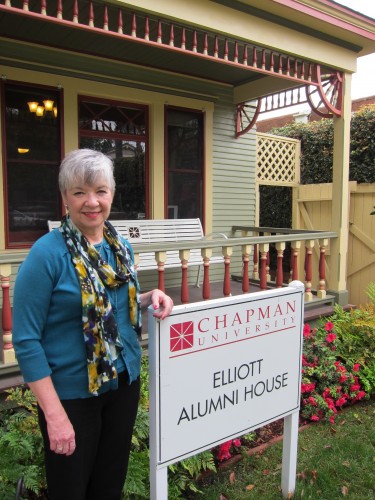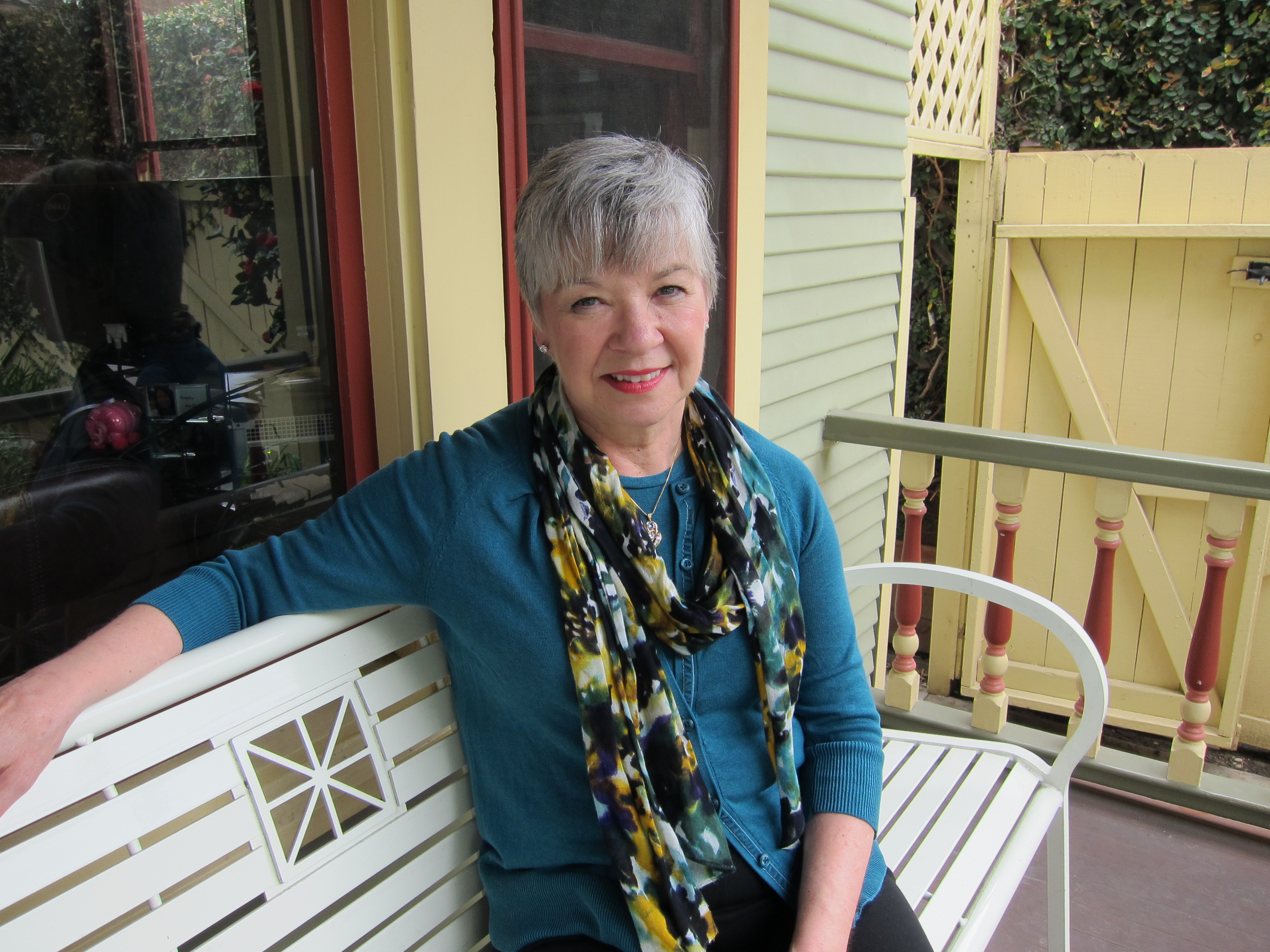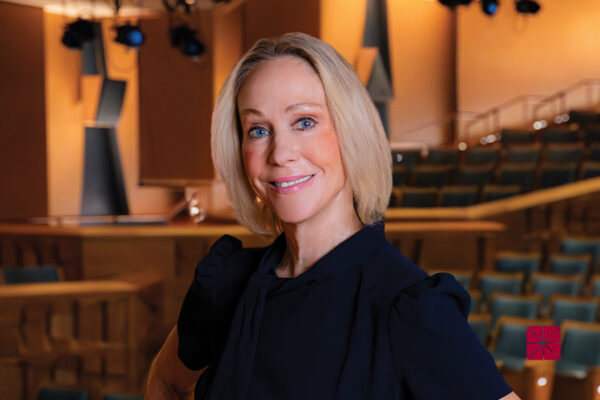
Karen Haren ’71 retires this month from a career as one of the nation’s leading food bank directors. Haren is pictured here at the Elliott Alumni House during a recent visit to campus.
By the 1970s, home economics degrees at the nation’s colleges and universities were considered cream puff material. Food, nutrition, family life and child development did not a hard-charging career make. Or so folks thought.
Karen Haren ’71 says it was her comprehensive education in that very major that prepared her for a career running one of the largest food banks in the Midwest. Haren retires at the end of this month from a 27-year career with Harvesters Community Food Network in Kansas City, Mo., an award-winning organization that feeds thousands of people a week and which was named Food Bank of the Year by
Feeding America
, the nation’s food bank network. Haren was also named Executive Director of the Year by the national organization.
As she reflects on her tenure at Harvesters, where she retires as president and CEO, Haren says it all began at Chapman where she arrived in the late `60s from Montana, having only seen photographs of the Orange County campus.
“I never actually worked as a home economist per se, but fortunately I had a well-rounded liberal arts education that prepared me to move into lots of different areas that really became my career,” Haren says.
Indeed, it’s her commitment to education that has helped Haren become a leader in the food relief world, says Mary McClure, a longtime Harvesters volunteer and former board chairman.

Among Harvesters’ more whimsical canned food drives was a recent “Canstruction” contest in a local mall.
“I think a key reason for Karen’s career success is that she is a lifelong learner who constantly embraces new concepts. Likely, her experience at Chapman greatly influenced her passion for lifelong learning,” McClure says. “She has worked hard to encourage other leaders to be visionary.”
That vision is manifest in the numbers. From its 250,000-square-foot warehouse Harvesters distributes more than 41 million pounds of food a year across 26 counties in two states, feeding some 66,000 people a week, 37 percent of whom are children. Binding it all together are the efforts of 5,000 volunteers whose donated hours aequal 89 full- time staff members.
The need continues to grow, too, Haren says. Food banks compete on the global market for donations of surplus food, and
food insecurity
is widespread in suburban and rural communities where summers can be tough on children who rely on school lunches.
But modern food banks are increasingly more businesslike, learning to brand their identities in a community, manage large volunteer groups and tap into the agricultural industry and farmers’ market communities to boost their stocks of fresh produce, Haran says.
“The focus is on bringing the business model to the non-profit world,” she says. “We are harvesters of many things.”
To make a gift in honor of Haren’s retirement, visit the Harvester’s website.





nice and creatif
visit http://www.mercubuana.ac.id